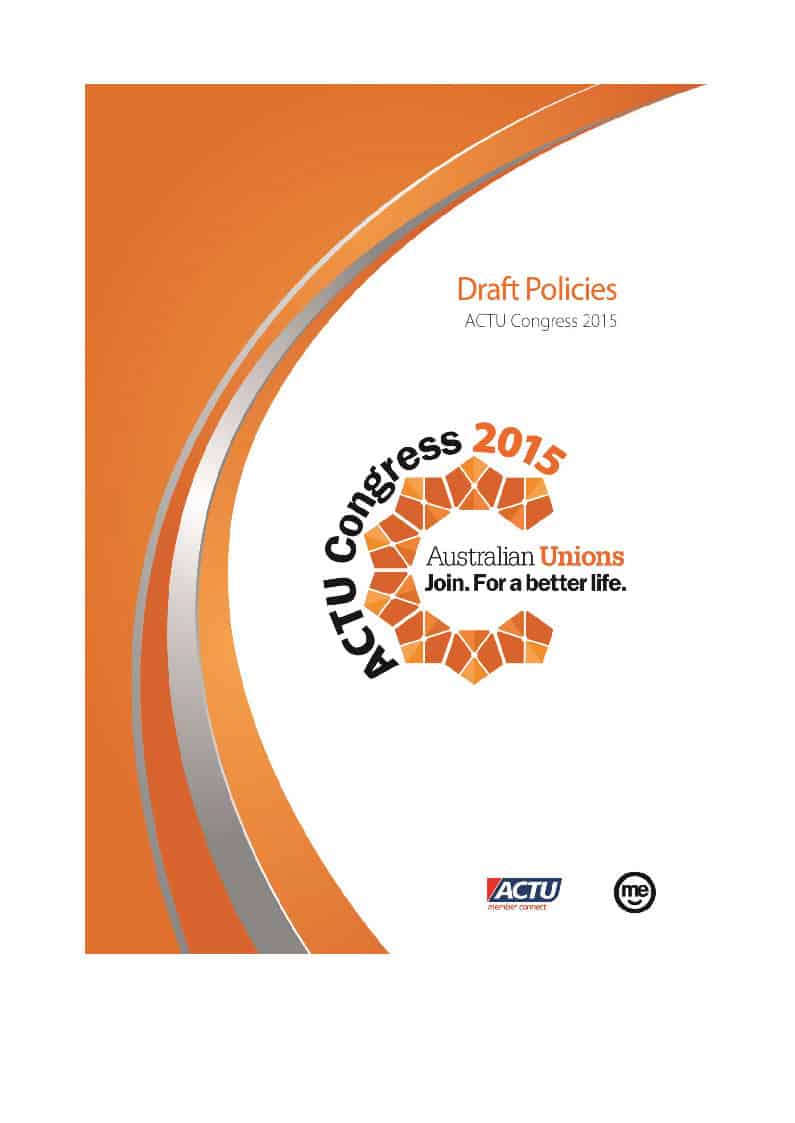 The Australian Council of Trade Unions (ACTU) commences its 2015 Congress this week. Each year around 800 trade union delegates meet to discuss changes to policies and to develop or refine strategies. This year the ACTU released its draft policies publicly prior to the Congress. These policies have a long and strong historical and industrial relations context. Occupational health and safety (OHS) is an important part of these policies and should spark discussions in the union movement and the OHS profession.
The Australian Council of Trade Unions (ACTU) commences its 2015 Congress this week. Each year around 800 trade union delegates meet to discuss changes to policies and to develop or refine strategies. This year the ACTU released its draft policies publicly prior to the Congress. These policies have a long and strong historical and industrial relations context. Occupational health and safety (OHS) is an important part of these policies and should spark discussions in the union movement and the OHS profession.
Early in the document, the ACTU states its “bargaining agenda” in which is included
“better work, life and family balance.” (page 7)
Curiously, the ACTU has chosen “better” rather than “safe”. Better is a more inclusive term but harder to define. Better for whom? Better could be better paid or more secure or safer.
Trade unionists often see OHS as being monitored and enforced through the mechanism of the Health and Safety Representatives (HSRs) and would argue that OHS is throughout all the draft policies due to the HSR role but there are more workplaces in Australia without HSRs than with and it is worth considering the policies as independent from the HSR structure, if that is possible..
